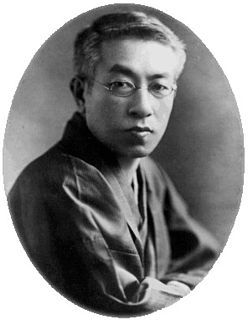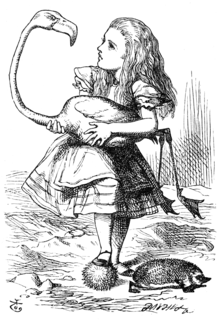This article includes a list of references, but its sources remain unclear because it has insufficient inline citations .(February 2011) (Learn how and when to remove this template message) |
I-Novel(私小説Shishōsetsu, Watakushi shōsetsu) is a literary genre in Japanese literature used to describe a type of confessional literature where the events in the story correspond to events in the author's life. [1] This genre was founded based on the Japanese reception of Naturalism during the Meiji period. Many authors believed the form reflected greater individuality and a less constrained method of writing. From its beginnings, the "I-Novel" was a genre that also was meant to expose the dark side of society or the dark side of the author's life.

A literary genre is a category of literary composition. Genres may be determined by literary technique, tone, content, or even length. The distinctions between genres and categories are flexible and loosely defined, often with subgroups.

Early works of Japanese literature were heavily influenced by cultural contact with China and Chinese literature, often written in Classical Chinese. Indian literature also had an influence through the separation of Buddhism in Japan. Eventually, Japanese literature developed into a separate style, although the influence of Chinese literature and Classical Chinese remained until the end of the Edo period. Since Japan reopened its ports to Western trading and diplomacy in the 19th century, Western and Eastern literature have strongly affected each other and continue to do so.
In literature, confessional writing is a first-person style that is often presented as an ongoing diary or letters, distinguished by revelations of a person's deeper or darker motivations.
There are several general rules for the creation of an I-Novel: The first and most important was that it was often written from the first person perspective (which is where the "I" of I-Novel comes from). [2] The Japanese language contains a number of different words for "I"; generally, the formal 'watashi' (私) was used in the I-Novel.
I-novels attempt to portray a realistic view of the world (thus the genre's ties to Naturalism). As autobiographical works, they involve real experiences to be completely portrayed with language. Because these two concepts were so important to the authors they used the events of their own lives for their subject matter. Many of them were also trained in literary studies, so their works expressed a great knowledge of literature. Compared to formal writing styles influenced by Chinese literature, I-Novels used more casual language.
The first "I-Novels" are believed to be Hakai (Broken Commandment), written in 1906 by Shimazaki Toson, and Futon (Quilt) written by Tayama Katai in 1907. In Hakai, Toson described a male who was born a member of a discriminated segment of the population (burakumin), and how he decided to violate his father's commandment not to reveal his community of birth. In Futon, the protagonist confesses his affection for a female pupil.

A futon (布団) is the Japanese traditional style of bedding.
Burakumin(部落民, "hamlet people"/"village people", "those who live in hamlets/villages") is an outcast group at the bottom of the traditional Japanese social order that has historically been the victim of severe discrimination and ostracism. They were originally members of outcast communities in the Japanese feudal era, composed of those with occupations considered impure or tainted by death, which have severe social stigmas of kegare attached to them. Traditionally, the Burakumin lived in their own communities, hamlets, or ghettos.
Major writers include Naoya Shiga, Osamu Dazai and others. Scandal by Shusaku Endo is a recent example of an "I-Novel".

Naoya Shiga was a Japanese novelist and short story writer active during the Taishō and Shōwa periods of Japan.

Osamu Dazai was a Japanese author who is considered one of the foremost fiction writers of 20th-century Japan. A number of his most popular works, such as The Setting Sun (Shayō) and No Longer Human, are considered modern-day classics in Japan. With a semi-autobiographical style and transparency into his personal life, Dazai's stories have intrigued the minds of many readers.






